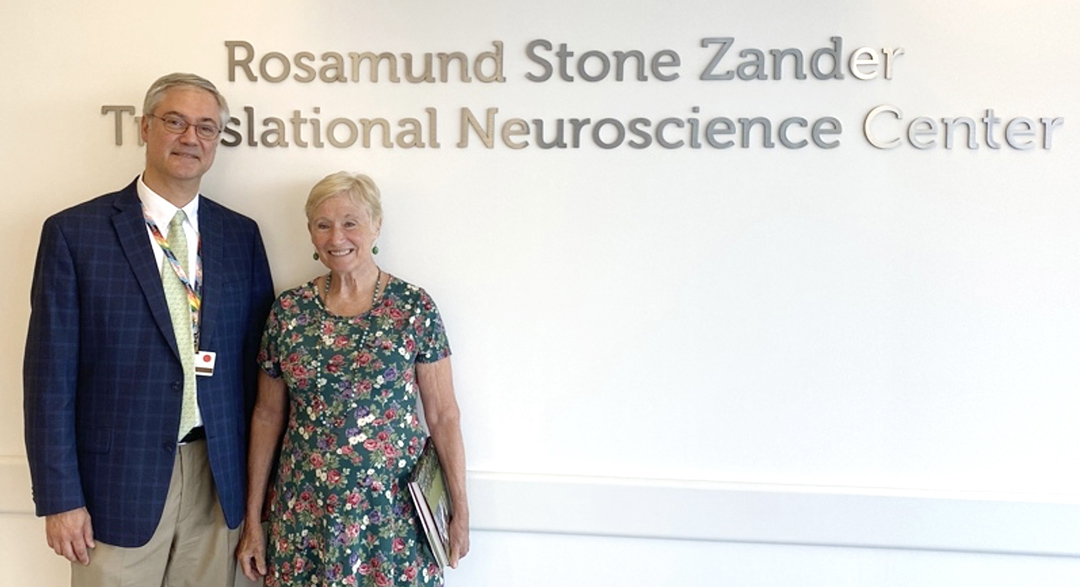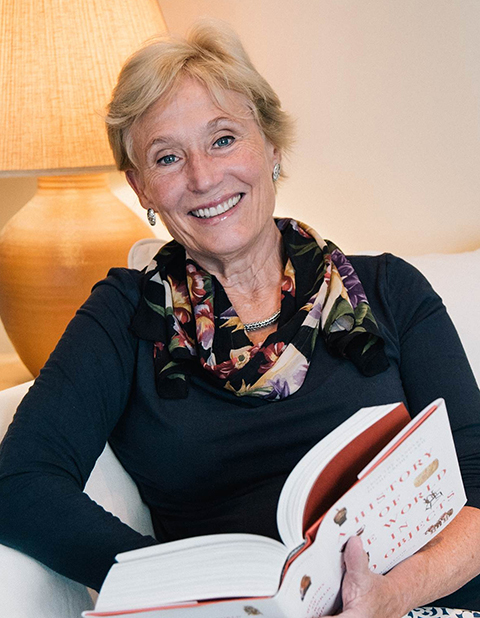About Us
Background; Origins
In 2013, Mustafa Sahin, MD, PhD, established the first Translational Neuroscience Center (TNC) at Boston Children’s Hospital (BCH). Professor of Neurology at BCH and the Harvard Medical School, Dr. Sahin is also a member of the National Academy of Medicine, recognized for his achievements in the neurobiology of autism and pioneering translational studies for neurogenetic disorders.

Rosamund Stone Zander led an extraordinary and exemplary life of generosity and creativity. She applied her diverse talents, intelligence and skills as a family therapist, best-selling author, leadership consultant, educator, painter and philanthropist toward improving the world she encountered.
Early experience teaching children with autism impressed upon her the challenges and needs of these individuals and their families. In the pursuit to make a difference in this domain, she found Dr. Sahin. His seminal research and dedication to improving the lives of affected children inspired her to endow the chair that he now holds. They formed an alliance dedicated to improving the lives of affected children and their families.
Over time, Ms. Zander challenged him to imagine how increased scale might accelerate the progress of his work. Together they developed an ambitious plan to expand the capabilities and scope of the foundational Center to speed translation of scientific discovery into widespread clinical practice. She provided transformational funding to the TNC through her J.P. Fletcher Foundation. The Rosamund Stone Zander Translational Neuroscience Center (RSZ TNC) launched in early 2021. The RSZ TNC broadens and accelerates the scope of its accomplished predecessor. With expanded infrastructure and increased research funding, the new center collaborates with and enables a vast network of advocacy, community-building and educational programs for patients, families and caretakers to advance promising innovations and to facilitate their translation into better diagnostics and treatments for childhood neurological disorders.

Rosamund Stone Zander, family therapist, leadership consultant, published author, educator, painter and philanthropist, died in September 2023.
Fundamentals

Vision
To apply state-of-the art science to transform the future for children and families affected by childhood neurological disorders.
Mission
To empower and inspire an exceptional community of translational investigators and clinical experts focused on neurodevelopmental disorders. To engage with a broader research network and patient advocacy organizations to advance promising innovations and facilitate their translation into better diagnostics and treatments for childhood neurological disorders.
Purpose
In the past, many pediatric neurological disorders were considered too rare or complex to target for treatment. Recent advances in medicine, genomics and computational biology open new possibilities for such patients. The Rosamund Stone Zander Translational Neuroscience Center at Boston Children’s Hospital facilitates the development of interdisciplinary collaborations to improve early diagnosis, accelerate drug discovery, and generate additional novel strategies for reducing the burden of pediatric nervous system disorders for patients and families. We promote the translation of research discoveries into new treatment options and help train the next generation of translational neuroscience researchers.
Values
We uphold the values of scientific rigor, collaboration, transparency, objectivity, equity and access.
Our engagement with dozens of patient advocacy groups allows us to learn about patient and caregiver perspectives and their priorities for clinical research.
Translational Community
We promote a transformative research community that respects, values, and supports all people.


